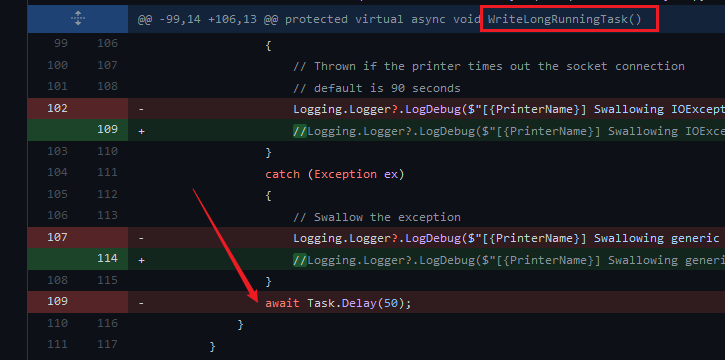-
-
Notifications
You must be signed in to change notification settings - Fork 159
New issue
Have a question about this project? Sign up for a free GitHub account to open an issue and contact its maintainers and the community.
By clicking “Sign up for GitHub”, you agree to our terms of service and privacy statement. We’ll occasionally send you account related emails.
Already on GitHub? Sign in to your account
Slow print after upgrade #124
Comments
|
I found the reason:
Since our data is sent line by line, this delay slows printing down dramatically. |
|
Few more info about this change. It was introduced at 9a68c53 and there was a Delay of So the said commit actually moved it up, and doubled the waiting |
|
Yes and the 50 ms delay got introduced with 32fae5e but never got published with any version it seems. ESC-POS-.NET/ESCPOS_NET/Printers/BasePrinter.cs Lines 97 to 122 in ec32839
|
|
@lukevp do you know why there was a double in the delays? |
|
@igorocampos @neon-dev I'll take a look this weekend and factor this in to the process. Sorry for the issues! I versioned it up to 2.0 since there were major changes to the networking and threading code in this release. Thanks for the PR @neon-dev, I'll probably take in the fix and tweak it slightly. The purpose of the sleeps overall is so that each read/write thread doesn't busy loop (since they are in a tight while loop that never ends, it will peg a CPU core at 100% if there is no deferring or async actions taking place). If there is actually work to be done, there shouldn't be a need for a delay. I'll provide more comments on the PR when I review. |

A user reported slow prints (SerialPrinter) after updating to 2.0. Is there some new setting I need to define?
Note: Previous version was 1.4.0, so 1.6.0 was skipped.
Thanks
The text was updated successfully, but these errors were encountered: